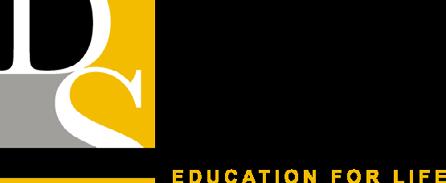




INTRODUCTION 3
KEY DATES 3
CHOOSING OPTIONS - KEY CONSIDERATIONS 4 WHAT CAN I CHOOSE? 5 MOVING ON TO COLLEGE 8 WHERE TO FIND HELP 9
English Language and English Literature GCSE 11 Mathematics GCSE 12
Combined Science GCSE 13 Triple Science GCSE 14
Geography GCSE 16 History GCSE 17 French GCSE 18 Spanish GCSE 19 Latin GCSE 20
Advanced Maths 22
Business GCSE 23
Child Development 24 Computer Science GCSE 25
Creative iMedia (Level 2) 26 Dance GCSE 27
Food Preparation and Nutrition GCSE 28
Design and Technology GCSE 29
Drama GCSE 30
Film Studies GCSE 31
Fine Art GCSE 32
Graphic Communication GCSE 33
Music GCSE 34
Music Practice 35 Photography GCSE 36 Psychology GCSE 37
Religious Studies GCSE 38
Physical Education GCSE 39
Sports Studies 40
Sociology GCSE 41 Statistics GCSE 42
Textiles GCSE 43
Personal Development and Employability Skills (PDE) Princes Trust Certificate 44 Sports Leadership and Coaching 45 NOTES 46
Welcome to Dorothy Stringer School’s options process. This is an important time for you, as this is the first time that you will need to make decisions which will affect your future career paths.
At Dorothy Stringer, we offer you a wide range of options for Years 10 and 11. We believe our options scheme is one of the most exciting and original available. It mirrors perfectly our intention to try to offer an appropriate curriculum for all students. All students will have to follow some ‘Core Subjects’ but they can then choose exciting and different subjects on top of this. This gives all our students the chance to do subjects that will most interest them in the upper school.
We will guide you to help you make the right options choices for you. All students will have a talk and receive a copy of the options booklet. There is an Options Evening which you will be able to attend with your parents/carers to ask more questions about option subjects. In addition, take the time to talk to the teachers who run the various courses to make sure you are making the right choices. You should also attend Parents’ Evening with your parents/carers as you will be able to ask your teachers whether they think your choices are suitable for you.
When choosing subjects, think about you, your strengths and what paths you may want to take in your future career; don’t base your choices on what your friends are doing or which teachers you like. Take advice from your parents/carers and from your teachers – but at the end of the day, the decision must be yours. You are going to have to work hard at your options for the next two years. If you are unsure about any part of this process, please talk to your PHSE teacher, Form Tutor or Head of Year, or come and see me. You can also get independent advice from the careers advisor on Monday lunchtimes in L3.
Cumming Deputy Head, Student ProgressMost of the option courses on offer result in a GCSE qualification or equivalent. Most students will study for 9 qualifications. However, some students will have extra qualifications e.g. Statistics for students in top set Maths and Triple Science. In general, gaining 8 or 9 qualifications with higher grades is more important than a larger number of qualifications at lower grades. Quality is more important that quantity.
It is a good idea to ensure that your choices are broad and balanced – even if you have a specific career in mind. You may change your mind over the next few years. Keeping your curriculum broad ensures that you keep as many doors as possible open. It also shows that you are a well-rounded person. Consider taking a subject that you really enjoy even if it isn’t something that you think will be relevant to your career.
• Take your time. Making hurried choices could mean making the wrong choices.
• Think about which subjects you are good at.
• Do you enjoy the subject? If you enjoy it, you are more likely to work hard and gain good grades.
• Think ahead, see the section below.
• Worry about your choices. There is lots of advice on offer. Make sure you talk to your Form Tutor or Head of Year, the lead teachers for the subjects, your PHSE teachers or Mrs Cumming.
• Choose a subject because your friends are choosing it. They may be more suited to a subject than you – and you will probably end up in a different class to them anyway
• Choose a subject because you like the teacher. You may not get that teacher for your class.
The choices you make now could affect the choices you can make in the future for 6th Form, University or career. You need to ensure that you keep as many doors open as possible. This means that you need to think ahead:
• Some A-level choices will require certain GCSE grades. For example, colleges may require a grade 5 or 6 in Maths to study A level Maths. However, there are many subjects where you do not need to have studied the option at GCSE in order to study it for A-level e.g. Psychology. Some guidance is given in the section below on ‘Moving on to College’ .
• Some of you will be aiming to go on to study at University. Some Universities value certain A-level subjects. For example the Russell Group universities (an association of the top 24 universities) describe certain A-levels as ‘Facilitating Subjects’. You can find useful information on their Informed Choices website at https://www.informedchoices.ac.uk/. Also take a look at https://university.which.co.uk which gives a useful overview, advice and guidance on choosing GCSEs and A levels with a view to university education.
• Some of you will be thinking about a vocational path. There are many careers for students who do not wish to go to university. There are a variety of courses at college which offer a chance to train whilst working. Look at college prospectuses for more details.
It is important that you think carefully about your options, as you are undertaking to study the subjects that you have chosen for two years. Every year, some students realise that they have chosen courses for the wrong reasons. Whilst we will try our best to accommodate requests for change, during September it can be difficult or impossible to change your choices once courses have started and in those circumstances you will need to continue with your choice until the end of Year 11. S TUDENTS ARE NOT PERMITTED TO DROP
.
All students will work for GCSEs in English Language, English Literature, Maths, Sciences (usually Combined Science). Students will also continue with the language they started to study in Year 9. In addition:
• Students who are likely to achieve top grades in Sciences may be able to take Triple Science (Biology, Chemistry and Physics) in place of Combined Science. Students who wish to be considered for Triple Science should indicate this on their option form.
• Students who are in Newton for Maths when they reach Year 11 will also take a GCSE in Statistics as a core part of their Maths course.
• All students will also study practical PE, PHSE and Ethical and Religious Studies. These subjects are not examined.
All students must select one of their options from the list of EBacc subjects. These include:
•
• History
• A second modern foreign language
• Latin (restrictions apply)
Further choices from these subjects may be made under free options.
Students may choose a two options from the list below. Restrictions apply to some options:
Business Computer Science
Dance Design and Technology
Drama
Film Studies Fine Art
Food Preparation and Nutrition
French Geography
Graphic Communication History Music Latin
Physical Education (PE)
Photography
Psychology Religious Studies (RS) Sociology
Spanish Statistics (restrictions apply)
Textiles (Art)
Child Development Music Performance Sports Studies Creative iMedia
Advanced Subjects
Advanced Maths (restrictions apply)
All students must make two reserve choices on the option form. These can be from any of the subjects offered. The reserves should be listed in order of preference.
Whilst we do our best to ensure you get the choices you have made, there are times when this proves impossible. There are a number of reasons for this. For example, some courses may not run if there is insufficient demand. Some may clash on the timetable. We will always consult you if this happens.
However, it is important that you put as much thought into your reserve choice as into your other options.
Students who are not studying a language in Year 9 will choose either a vocational option or a nonqualification option from the non-language pathway. Students should choose one of the following, and also a reserve choice
• Creative iMedia
• Child Development
• Music Performance
• Sports Studies
• Personal Development and Employability Skills (non-qualification)
• Sports Leadership and Coaching (non-qualification)
The following restrictions apply to option choices. You should read these carefully.
• Three separate Sciences will only be allowed for the most able scientists. Students choosing this will have to complete the three qualifications in the time everyone else does the two sciences and will need to pick up concepts quickly and do additional work on their own. We will therefore look for students to have an ATL of 1.8 or better by the start of Year 10.
• No more than TWO of French, Spanish and Latin may be taken
• Only one of Fine Art, Textiles (Art), Photography or Graphic Communication
• No more than one DT subject (Product Design or Food Preparation and Nutrition)
• Only one of Computer Science or Creative iMedia
• Only one of Music or Music Performance
• Only one of PE, Dance or Sports Studies
• Advanced Maths is limited to students in set Newton for Maths.
College websites can give you a valuable insight into what subjects and grades you need to be achieving. The prospectuses from colleges should be used as the definitive guide to their requirements. However, as a rough guide:
• to study 3 A levels, you will need to have 6 GCSEs at grade 4 including English and Maths. Some colleges require more.
• whilst most students study 3 A levels, it is possible to study 4 A levels. Check the college websites for requirements especially if choosing double Maths.
• to study the International Baccalaureate you will need at least 7 GCSEs at Grade 6 or above including English, Maths and Science.
• to study a vocational level 3 course, you will need 5 GCSEs at grade 4 or equivalent including English or Maths depending on the college.
• to study a vocational level 2 course, you will need 5 GCSEs at grade 3 or equivalent including English depending on the college.
Some courses will require specific grades at GCSE. You need to check this information yourself. The following is just a guide based on requirements that colleges have given in the past for A levels.
Any Art A Level
Any Science A Level
Any Language A Level
Minimum requirement of a Grade 5 or 4 at GCSE Art (Dependent on college).
Two Grade 6 GCSEs in Science, including the Science selected (e.g. Physics for Physics A level) or Combined Science plus Grade 5 in Maths and English.
At least a grade 6 achieved at GCSE in the chosen language and 4 in English Language.
Maths Grade 6 GCSE in Maths (and 4 in English for BHASVIC).
Double Maths (Maths and Further Maths)
Computer Science
Grade 7 GCSE in Maths (and 4 in English for BHASVIC).
Grade 6 in Maths GCSE.
Music Grade 6 or above in Music GCSE or Grade 5 instrumental exam.
For many other A Level courses, a GCSE in the same subject is NOT a requirement. e.g. Business, Drama, Psychology, Sociology. However, if you have taken the GCSE, a specific grade may be required.
The English Language and Literature GCSEs cover a wide and varied range of topics, texts and genres. These include:
• Extracts of 20th and 21st century Literary fiction
• Extracts of 19th and 20th century Literary non-fiction
• Shakespeare (Macbeth)
• 19th century novels (A Christmas Carol by Charles Dickens)
• 20th century drama (An Inspector Calls by J.B.Priestley)
• A range of poetry from the 16th century to the modern day based around the theme of Love and Relationships
For GCSE English students will focus on the following key skills:
• Reading fluently, and with good understanding, a wide range of texts from the 19th, 20th and 21st centuries, including literature and literary non-fiction as well as other writing such as reviews and journalism
• Reading and evaluating texts critically and making comparisons between texts
• Summarising and synthesising information or ideas from texts
• Using knowledge gained from wide reading to inform and improve their own writing
• Writing effectively and coherently using Standard English appropriately
• Using grammar correctly and punctuating and spelling accurately
• Acquiring and applying a wide vocabulary, alongside a knowledge and understanding of grammatical terminology, and linguistic conventions for reading, writing and spoken language
• Listening to and understanding spoken language and using spoken Standard English effectively.
English Language
2 x final examinations of 1 hour and 45 minutes each
English Literature
1 x final examination of 1 hour and 45 minutes
1 x final examination of 2 hours and 15 minutes
The course is adapted and differentiated to support all students to achieve their targets.
AS and A2 in English Literature, English Language or Combined Language/Literature courses.
English qualifications are also suitable for further study of a number of other post-16 courses that involve essay writing and analysis.
“English always reminds me that there is no right answer; that any opinion can be valid if there is evidence to support it.”
“I love English because I get the chance to dig deep in the words of great writers and find the hidden gems that they left behind.”
Is this a dagger I see before me?
Mathematics is studied by all students in the upper school. Students are taught key mathematical principles and then apply this knowledge in problem solving and in everyday situations. The skills covered in Maths are also applied in other subjects. Students are encouraged to present their solutions in different forms; these may include written explanations, diagrams and discussion. They will develop a feel for numbers, be able to reason logically and appreciate patterns and relationships in Mathematics. They will be expected to extend ideas in practical and investigative situations and work both independently and in groups.
Students are required to have their own scientific calculator, (we recommend Casio fx-83GTX which can be bought from online retailers such as Amazon) together with a full set of mathematical equipment.
The course comprises of five topic areas; number, algebra, ratio, proportion and rates of change, geometry and measures, probability, and statistics.

Students who are in set Newton when they reach Year 11 will have their studies extended and will take GCSE Statistics as a separate subject. The course aims to increase the students’ ability to present and interpret data and to select and calculate statistical measures. GCSE Statistics is offered as an option for other students. See Statistics Option page.
Note that students who are currently in class Newton and who particularly want to study Statistics as an option course should speak to Mr Francis.
Three written exams at the end of Year 11.
Two calculator papers and one non-calculator paper (each 1½ hrs).
This is a compulsory subject and all students are expected to complete this course.
AS or A level Maths
AS or A level Further Maths
A good Maths grade can open up a wealth of opportunities at Post-16.
“Over my past years at Dorothy Stringer I have found that I really enjoy maths. Also that you learn more than just algebra in a lesson, you learn logical everyday skills as well.”
“Maths is very useful in the real world.”
Being scientifically literate is becoming increasingly important for all students as they head out into a technological world. This course aims to develop a deep understanding of the key ideas across all three science disciplines of Biology, Chemistry and Physics. At completion of the course students gain two GCSEs in Science.
Topics covered include; Biology – cells and organs, infection and response, bioenergetics, homeostasis, inheritance and evolution and ecology.
Chemistry – atomic structure and bonding, structure and properties of matter, quantitative chemistry, chemical changes, energy changes, the rate of chemical change, organic chemistry, chemical analysis, chemistry of the atmosphere and using resources.
Physics - forces, energy, waves, electricity, magnetism and electromagnetism, particle model of matter and atomic structure.
As Science is best experienced through observation and involvement, so the course is delivered using a range of practical activities that aim to engage and inspire students of all abilities and interest. Different learning styles are also used in lessons to support students’ progress throughout the two years.
Each student is issued with a work book, where regular notes and practical activities are written, as well as an assessment folder where on-going assessments are collected for future reference. Regular assessments and home learning allow students to identify gaps in their learning so that targeted support can be given. All students are advised to purchase a revision guide that accompanies the course and supports their learning in class. For more information visit the Science subject page on the SLG.
This is assessed with six, one hour and 15 minute exams at the end of Year 11; two for each of the disciplines of Biology, Chemistry and Physics
This is a compulsory subject and all students are expected to complete this course or the Triple Science course
A good Science grade can open up a wealth of opportunities at Post-16. Most college courses would expect a grade 6 or above to study a Science at ‘A’ level. However, many other courses look on science as an important foundation to start their course including Psychology, Animal Sciences and Applied BTEC courses.
“I found the course really interesting and most of it is done through practical work which really helped me understand”
“The topics cover everything and you can see just how important science is”
“I thought I didn’t like Science but now I’m going to do it at College”
If you have a passion for science and technology and are thinking of taking science further then this is the course for you. As well as developing a deep understanding of the key ideas in each of the three disciplines of Biology, Chemistry and Physics this course looks at the very latest real world applications and research. At the completion of the course students gain three GCSEs, one in each of Biology, Chemistry and Physics.
Topics covered include;
Biology – cells and organs, infection and response, bioenergetics, homeostasis, inheritance and evolution and ecology.
Chemistry – atomic structure and bonding, structure and properties of matter, quantitative chemistry, chemical changes, energy changes, the rate of chemical change, organic chemistry, chemical analysis, chemistry of the atmosphere and using resources.
Physics – forces, energy, waves, electricity, magnetism and electromagnetism, particle model of matter and atomic structure.
As Science is best experienced through observation and involvement, so the course is delivered using a range of practical activities that aim to engage and inspire students of all abilities and interest. Different learning styles are also used in lessons to support students’ progress throughout the two years.
Each student is issued with a work book, where regular notes and practical activities are written, as well as an assessment folder where on-going assessments are collected for future reference. All students are advised to purchase the three revision guides that accompany the course and supports their learning in class. For more information visit the Science subject page on the SLG.
This is assessed with two, one hour and 45min exams for each discipline of Biology, Chemistry and Physics at the end of Year 11.
This course would suit those students who have an interest in Science and are thinking of continuing Science into KS5. We do expect students to have an overall ATL of 1.8 or better.
A good Science grade can open up a wealth of opportunities at Post-16. Most college courses would expect a grade 6 or above to study a Science at ‘A’ level. However, many other courses look on science as an important foundation to start their course including Psychology, Animal Sciences and Applied BTEC courses.
“There is so much you learn that can be applied to the real world around you”
“The course is a challenge but the support from teachers is excellent” “This has really helped me to know what I want to do in the future –Physics of course”
Geography is not just about where places are; it helps us answer questions about the modern world: Why do so many people want to move to the UK (and is that a bad thing?). How old might you be before you can afford to buy a house or retire? How might changing weather patterns impact our lives? Are humans destroying or conserving ecosystems? Why don’t some people want energy to be produced close to home? What are the consequences of national and international inequality? Geography is about earthquakes, volcanoes and tsunamis. It’s about rivers and coasts, poverty and wealth. It’s about housing shortages and pollution. It’s about rising sea levels and tourism. In a nutshell, it’s about our world as it changes around us!
Fieldwork is a required part of this course; you will spend two days away from school collecting data from a river or coastal area and locations within Brighton.
Not only is it interesting, Geography gives you skills that will be useful when you leave school. The skills that you learn and practise in Geography give you a lot to offer future employers. In interviews you will be able to speak about your ability to: ask relevant questions, think creatively, make decisions, solve problems, collect, present, analyse and evaluate data, work as part of a team, use ICT. With GCSE Geography under your belt you become very employable.

3 exams at the end of Year 11:
• Changing Physical & Human Landscapes (90mins / 35%)
• Environmental & Development Issues (90 mins / 35%)
• Applied Fieldwork & Decision Making (90mins / 30%)
To do well you must enjoy the subject, be committed to hard work and be an active participant in lessons. You also need to be prepared to get wet; you can’t study a river properly unless you get in it!
Students should have reasonable mathematical and literacy skills:
• 10% of the marks for this course are assessed on your mathematical and statistical skills.
• 5% of the marks for this course are assessed on your literacy skills.
AS, A level, HNC/HND, BA/BSc
• Geography is a subject that is accepted and respected by all universities and employers.

• Geography bridges the gap between the arts and sciences, giving you greater choice later in life.
“I love learning about the environment we live in today. I like learning about volcanoes best because they’re exciting and naturally destructive which is fun to learn about in class!”
History is an opportunity to understand and explain our modern society. In a fast developing world, History examines the causes, events and results of changes in a variety of times and places. It teaches students to think critically and challenge what they are being told to help them make their own independent, rational decisions. Throughout the different units of study, students will develop valuable historical skills of understanding complex human events. Students explain significant events and use evidence to support their reasoned judgements.
There are four units of study: Migrants in Britain, c800–present and Notting Hill, c1948–c1970 (Paper 1)
A thematic study of the experiences of migrants to and within Britain since c800 looking at who has arrived, why people have migrated and their experiences upon arrival. It will analyse the changing factors over time which contribute to migrants’ experiences. It includes a focused local study on London’s Notting Hill district between 1948 and 1970.
Early Elizabethan England, 1558 to 1588 (Paper 2)
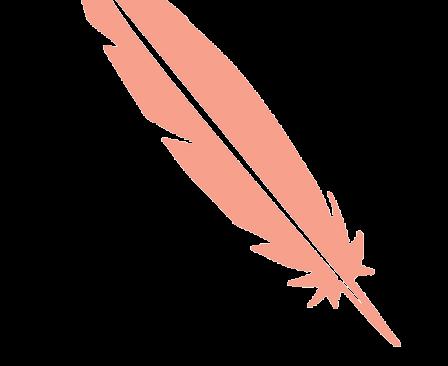

Students explore a pivotal moment in English history as the country transformed under its most famous queen. The unit begins with the religious, political and gender turmoil of the Tudors. It considers how England achieved a fragile stability and dramatically defeated a global superpower.
Superpower Relations, from 1941 to 1991 (Paper 2)
This unit looks at how the two ‘superpowers’ of the USA and USSR dominated the globe in the ‘Cold War’ for five decades. Students will understand why and how the two sides went from wartime friendship to the brink of nuclear destruction. They will also see how this dangerous conflict dramatically ended with demonstrations of people power in 1989.
Germany, from 1918 to 1939 (Paper 3)

Students will examine how Germany struggled through the 1920s before the election of Adolf Hitler and the descent into the nightmare of the Nazi dictatorship in the 1930s.
There will be three separate exam papers at the end of Year 11. Paper 1 30% Paper 2 40% Paper 3 30% There is no Controlled Assessment or Coursework.
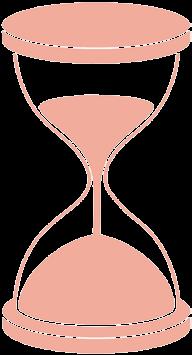
History is suitable for students who have enjoyed the subject in Key Stage 3, are inquisitive and curious about the world around them, and want to develop their critical thinking and communication skills.
GCSE History is a very flexible qualification. It provides a strong starting point for the further study of History, Politics, Law, Sociology, Classics and other social sciences.
The skills in History are important in a wide range of careers as it teaches students to think critically, organise information effectively, explain, prioritise and justify their ideas.
“It is interesting, fun, and gives you a great sense of historical knowledge that you can apply to new issues.”
“History is great. It is for people who like to find out about why things happen. It also interlinks with other subjects like sociology, RS, Psychology.”
“It is a subject where I enjoy when I learn.”

The French GCSE is made up of the four language skills of listening, speaking, reading and writing. We teach many topics, such as sport & leisure, home life and media & culture, in order to prepare you for your final exams.
During the course, you will continue to work on all four language skills. Learning vocabulary and speaking with correct pronunciation are a constant focus of the course. You will also learn French grammar such as the use of adjectives, verb patterns, tenses and word order. You will learn how speech and writing change in different situations.
We will teach your lessons as much as we can in French. You will hear and see ‘real’ French throughout the course, using texts in books and ICT to help with learning grammar and vocabulary. We will promote spontaneous speech and develop creative writing skills in order to best prepare you for the final exams.
We live in a world where languages and culture do not belong to a single country anymore. Knowing a second language will open many doors for you in the future, easing your job search and empowering your career. Qu’est-ce que tu attends?

How the course is assessed
1 x listening exam (25%)
1 x speaking exam (25%)
1 x reading exam (25%)
1 x writing exam (25%)
Students who studied French in Year 9 will continue to study French.
Students who are considering taking languages further and who are studying Spanish may wish to consider taking French as well.
GCSE French counts towards 1 of the 5 awards needed in order to gain the EBacc
A Level (with a good GCSE grade). Some universities now have a GCSE in a language as an entry requirement.
“GSCE French is good because it allows you to speak with people in other countries and you learn something new every lesson.”
“It’s a really good skill to have and it is good that we have learnt French from Year 7 through to the end of Year 11.”
The Spanish GCSE is made up of the four language skills of listening, speaking, reading and writing. We teach many topics, such as sport & leisure, home life and media & culture, in order to prepare you for your final exams.
During the course, you will continue to work on all four language skills. Learning vocabulary and speaking with correct pronunciation are a constant focus of the course. You will also learn Spanish grammar such as the use of adjectives, verb patterns, tenses and word order. You will learn how speech and writing change in different situations.
We will teach your lessons as much as we can in Spanish. You will hear and see ‘real’ Spanish throughout the course, using texts in books and ICT to help with learning grammar and vocabulary. We will promote spontaneous speech and develop creative writing skills in order to best prepare you for the final exams.
We live in a world where languages and culture do not belong to a single country anymore. Knowing a second language will open many doors for you in the future, easing your job search and empowering your career. ¿A qué esperas?
How the course is assessed
1 x listening exam (25%)
1 x speaking exam (25%)
1 x reading exam (25%) 1 x writing exam (25%)
Students who studied Spanish in Year 9 will continue to study Spanish.
Students who are considering taking languages further and who are studying French may wish to consider taking Spanish as well.

GCSE Spanish counts towards 1 of the 5 awards needed in order to gain the EBacc
A Level (with a good GCSE grade). Some universities now have a GCSE in a language as an entry requirement..
“I like Spanish because it is easy to learn and it means I can travel to other countries and understand what they are saying.’’
“I think that it is a fantastic language to learn and to be able to use in your future.”
EBACC
Latin GCSE
SUBJECTS
• Gives insights into other cultures and the background of our own
• Throws light on contemporary moral and political issues
• Is a sound basis for learning other languages
• Supports study in Ancient History, Classical Civilisation and Archaeology
• Develops vocabulary by exploring the etymology of words
• Is fun and discussions about Harry Potter, football mottos and slogans do occur, along with lots of discussion about the life of the Romans.
Latin has traditionally been seen as a ‘gold standard’ subject as far as difficulty is concerned. Indeed, research has shown Latin to be the hardest GCSE at which to gain a top grade. This examination course offered by WJEC at GCSE level allows for schools to deliver a rigorous syllabus involving; becoming proficient at translating Latin, responding personally to literature they study and learning about Ancient History. The emphasis on rote learning has gone!
Students study the language, poetry and prose, as well as Roman Life topics including ‘Town Houses’, ‘Slaves and Freedmen’, ‘Roman Food’, ‘the Forum’ and ‘Schools’.
Book one of the course is based around life in Pompeii before and around the eruption of Mount Vesuvius – a series of stories about the family of Caecilius the Banker.
Book two is about Roman Britain and Book three is on the Roman Army.
Latin Language: 1 hour and 30 minute exam (50% of GCSE).
Latin Literature and Sources (themes): 1 hour & 15 minute exam (30% of GCSE).
Roman Civilisation: 1 hour exam (20% of GCSE).
Suitable Candidates
It is a great choice for supporting a career in law, medicine, archaeology, science and nature (inc. Veterinary), politics, linguistics, ancient history and theatre.
This subject would go well with Philosophy, Psychology, Science, Languages and other Humanities.
Post 16 Progression Routes
Student Comments
“Latin is good because it is challenging and fun”.
“I enjoy Latin because I like learning about the language and history at the same time”.
Do you enjoy solving problems and puzzles? Are you confident with Algebra? Do you prefer subjects that don’t need lots of writing? Are you in set Newton and expected to achieve a good grade 8 or 9 in Maths? Then Advanced Maths might be for you.
This course follows components of an A level course. The aim of the course is to prepare students for the jump to A level. Most students who take this course move on to study double Maths A level in 6th Form. Whilst we study the AS Maths syllabus, changes in A levels means that taking the AS exams themselves now has little value. Students will therefore be entered for OCR Additional Maths, FSMQ and AQA level 2 Further Mathematics. The programme is largely built on two areas:
Core Maths largely builds on GCSE Maths and covers a lot of the GCSE 8 and 9 material but in more detail. It is therefore a good way of consolidating GCSE Maths and potentially achieving a higher GCSE grade. The module is predominantly Algebra and Co-ordinate Geometry (graphs). Additional topics include sequences and series, differentiation and integration.
Mechanics - Mechanics is about the mathematics of the physical world. It is very useful to students studying Physics or those who want to go on to be engineers or architects. You will learn about Elementary Modelling, Vectors, Newton’s laws of Motion, Friction, Momentum and Collisions.
In addition, we will explore other areas of Maths covered as part of a full A-level such as Decision Maths and Statistics.
To consider this course you should enjoy Maths – particularly since you will be doing 13 lessons of Maths a fortnight including your GCSE Maths! You will be expected to do some independent working.
The aim of the course is to give you a feel for what ‘real’ maths is about.
Additional Maths: Written Paper (2 hours).
Further Maths: Two Written Papers (Non Calculator 1½ hours, Calculator 2 hours).
This course is only open to students with a predicted high grade 8 or 9 in GCSE Maths. You will already be in the top set for Maths and be in your ‘comfort zone’.
If you are considering this option you must book an appointment with Mrs Cumming at Parents’ Evening or at an alternative time.
Most students who have completed Advanced Maths choose to move onto a double Maths (Maths and Further Maths) course at 6th Form. Double Maths is a pre-requisite for a number of degrees at top universities. A variety of other options are available, depending on the college.
“The course has inspired me and made me excited about maths”
“Studying Advanced Maths made me more mature and taught me how to study….and it’s nice working in a small group”
“I wasn’t sure whether I wanted to do Maths at A-level. Now I can’t imagine life without Maths!”
This is a very popular, active and enjoyable course aimed at students who are interested in the business world, possibly with ambitions of owning or managing a company in the future. The course is designed to prepare students for the world of work, whether as an individual or part of an organisation.
Through our exciting approach to teaching and learning, guest speakers and educational trips students will build their knowledge and understanding of the business world.
Students will be learning about:
• Business in the real world
• Influences on business, including the impact of technology, environmental and ethical considerations, globalization and legislation
• Business operations and the supply chain
• The selection, recruitment and motivation of employees
• How businesses identify and understand customer needs in order to develop, market and distribute their products
• How businesses organise their finances, including how to analyse the financial performance of a business.
Students have the opportunity to take part in a number of nationwide competitions including the Student Investor Challenge and the Tenner Challenge.
Throughout the course students are required to:
• apply business concepts to familiar and unfamiliar contexts
• develop problem-solving and decision-making skills relevant to business
• Investigate, analyse and evaluate business opportunities and
• issues and make justified recommendations.
Assessment is at the end of Year 11, through two written exams. Each is 1 hour and 45 minutes and worth 90 marks, 50% of the GCSE.
There are multiple choice questions, short answer questions as well as detailed case study essay style questions.
This course suits students with a keen interest in business who are motivated to work independently to achieve their goals.
• Are you hard working?
• Great at communicating when writing and speaking?
• Do you enjoy analysing and evaluating business data?
• Can you apply your skills to solving real business problems?
A Level Business or Economics and BTEC Level 3 Business Studies (not a pre-requisite).
“Lessons are great, we do a variety of activities to help support our learning. Really glad I opted for this GCSE. Feel I can run my own business one day whatever the type of business it is!”
“I hope to study Economics at college. Lessons make you think about the future but from a different point than you would think.”
This qualification will help students to develop their independence and confidence using skills that would be relevant to the Childcare sector. It provides students with knowledge, understanding and practical skills that will allow them to help and support children in their care, starting from preconception through to children aged birth to five years.
How is the course assesed?
60% coursework- this includes two assignments
40% exam- this includes one written paper
Are you interested in learning about how children develop?
Unit R057: Health and well-being for child development (exam)
This unit focuses on the importance of pre-conception health and reproduction, antenatal care and preparation for birth. The unit also covers postnatal care and the conditions in which a child can thrive.
Unit R058: Create a safe environment and understand the nutritional needs of children from birth to five years (coursework)
This unit focuses on how to create a safe environment for children from birth to five years in childcare settings. Students will research and choose equipment that is suitable and safe for use and will learn about children’s nutrition and dietary needs.
Unit R059: Understand the development of a child from one to five years (coursework)
In this unit students will learn the physical, intellectual and social developmental norms for children from one to five years. They will understand the importance of creating plans and providing different play activities to support children in their development.
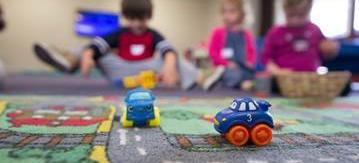
How to provide a safe and nurturing environment for children?
Are you considering a career working with children in the childcare sector?
This course will suit you if you want to progress onto other care related study, such as qualifications in Childcare or Health and Social Care.
This course will suit those who work better through completing coursework and taking part in role-play rather than sitting exams
The Computer Science GCSE give students an in-depth understanding of how computer technology works. It offers an insight into what goes on ‘behind the scenes’, including a significant amount of computer programming, which many students find absorbing.
Students will be learning about:
• computer systems, including hardware and software
• the fundamentals of IT systems, networks and the internet
• current and emerging technologies
• ethical, legal, cultural and environmental concerns
• computational thinking, algorithms and programming
• the programming design process
A significant part of the course is spent developing and programming systems to solve problems. This means students must be prepared to invest time and effort into mastering the basics of writing solid code.

The students will have access to a wide variety of software to develop and advance their skills and knowledge. The main programming language used at school is Python.
This course will enable students to develop critical thinking, analysis and problem-solving skills. For many it will be a fun and interesting way to develop these skills, which can be transferred to other subjects and applied to daily life.
Assessment is at the end of Year 11, through two written exams. Each is 1 hour and 30 minutes and worth 80 marks, 50% of the GCSE.
In addition, there is a 20 hour Programming Project which all students must complete.
This course would suit students interested in computers and computer programming.
Students must be proficient and confident with mathematics and have a wider interest in the technical aspects of computing.
Students who may find the mathematical aspects of computer science a challenge should consider opting for Creative iMedia.
• AS, A Level and BTEC Level 3 Computer Science and Information Technology qualifications (not a pre-requisite).
• Students wanting to go on to higher study and/or employment in the field of computer science or engineering will find that this course provides a superb basis on which to apply
“Computer Science has helped me become more independent when solving problems”
“Since starting Computing GCSE I’ve learned to write code to a much deeper level than before.”
The OCR Cambridge National in Creative iMedia equips students with the wide range of knowledge and skills needed to work in the media industry
This will help you to develop independence and confidence in using skills that would be relevant to the media industry. The qualification will also help you to develop learning and skills that can be used in other life and work situations, such as:
• thinking about situations and deciding what is required to be successful
• exploring different options and choosing the best way forward to a solve problem
• exploring and generating original ideas to find imaginative solutions to problems
• selecting the best tools and techniques to use to solve a problem
• appropriate use of media to convey meaning
• use of planning techniques to complete tasks in an organised way which meet deadlines.
You will study 2 mandatory units and choose 1 optional unit. The two mandatory units are:
Unit R093: Creative iMedia in the media industry. This is assessed by taking an exam.
Unit R094: Visual identity and digital graphics This is assessed by completing a set assignment.
Topics to choose from for the optional unit include:
• Characters and comics
• Animation with audio
• Interactive digital media
• Visual imaging
• Digital games.
Made up of the three units:
RO93: Creative iMedia in the media industry Externally assessed unit comprising a written exam set and marked by OCR (40%)
RO94 Visual identity and digital graphics and one optional unit. These two units are internally assessed, externally moderated project units (equalling 60%)
This course would suit students who are interested in taking an engaging qualification where you will use your learning in practical, real-life situations, such as:
• developing visual identities for clients
• planning and creating original digital graphics
• planning, creating and reviewing original digital media products.
• Students will need to have good written literacy skills to attain the higher grades.
You may only take one of Media Studies or Creative iMedia
Cambridge nationals provide a strong base for progression to Further Education:
• Cambridge technicals in IT: Digital Media Level 2-3
• A level Media studies
• Apprenticeships level 3
Student Comments
“Interesting. You get to learn a lot. I think most people would enjoy it.”
“Not what I was expecting but it is cool!”
The GCSE Dance course allows candidates to develop an insight into and an understanding of a wide range of Dance based activities including:
• Using movement to express ideas and concepts
• Developing and applying performance skills
• Appreciating professional works
• Exploring contemporary dance technique
“Dance is vital, an activity both exhilarating and liberating to watch or do. The instinct to dance is fundamentally joyous and no matter how hard you try you can’t get away from that for long.”
Candidates are given the opportunity to develop an understanding and working knowledge in three key areas;
• As performers, students develop confidence, technique, selfesteem, as well as being able to sensitively work with others.
• As choreographers, students use their problem-solving and creative skills. Effective choreography requires imagination and the ability to organise a number of elements.
• As critics, students make informed decisions about the dances they see. They articulate their knowledge, opinions and preferences.
Internally marked and externally moderated coursework and a 1½ hour written exam.
• Marks are awarded for
• Performance- 30%
• Choreography – 30%
• Appreciation – 40%
Exam questions are based on students’ own practice in performance and choreography and the six professional dance works.
Whilst students who wish to follow the course do not need to have had previous experience of performance, this is a challenging course and they should have enjoyed opportunities in lessons for performing, choreographing and appreciating. They should also have a keen interest in dance and be prepared to give time out of school for theatre visits and rehearsing with their group in preparation for examined performances.
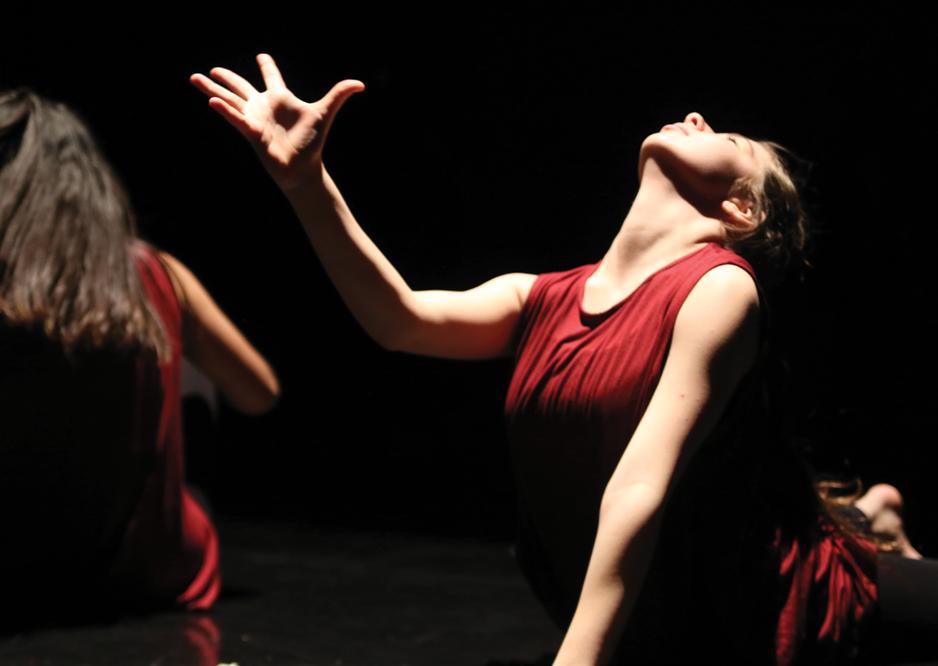
AS and A level
Arts
BTEC Dance or Performing Arts.
Student Comments
“Dance challenges me in a completely different way to my other subjects. Besides doing something I love,I develop as a dancer, work creatively through choreography, and express myself in performance, whilst also studying about dance and the history of it.”
This GCSE has been designed to cover a range of different topics which ensure students have a broad and deep understanding of all areas of food. Students will study:
• Food Preparation Skills
• Food Nutrition and Health
• Food Safety
• Food Science
• Food Provenance
• Food Choice
During the course you will be given the opportunity to practise a wide range of practical skills along with having a greater understanding of nutrition, the science behind food as a material and the wider environmental aspects associated with food. The course is taught in a very “hands on” practical way and so consequently the weekly purchase of ingredients is essential; therefore time to collect ingredients and the cost of them will need to be considered. If you are worried about this then you can discuss this with your Design Technology teacher.
The food technology industry is one of the world’s fastest and biggest growing industries. In fact over 20% of the top 100 British Companies are in food manufacturing. The food and drink industry is booming, with employment reaching the heights of 650,000 people and an annual turnover of £66 billion. The opportunities to work within the food industry really are endless. The food industry contains many multinational companies and opportunities for travel or work abroad exist for those who wish to spread their wings.
Dietician/ Nutritionist/ Food buyer/ Product development/ Sensory Analysis and Product Testing/ Chef/ Baker/ Caterer/ Food Journalist/ Environmental Health Officer/ Store Manager of Supermarket/ Packing Technologist/ Teacher
In Year 11 students will complete
2 Non Examination Assessments
(NEA):
• Task 1: investigation (approx.10 hours) 15% of GCSE
• Task 2: Food preparation Assessment (approx.20 hours including a 3 hour practical assessment) 35% of GCSE
Written examination:
• 1 hour 45 minute exam, 50% of GCSE
This course would suit anyone with a passion for food and who is interested in learning more about the subject while enhancing their practical skills.
There are a range of options to study food further at college level including, but not limited to:
• NVQ Catering
• Health and Social Care
• Sports and Nutrition
• A Level Science
Students can then pursue a degree in a range of different subjects including:
• Food and Nutrition
• Dietetics
• Food Science
• Food Management
“Health and Nutrition is part of everyone’s future and this course is preparing me for a range of education and career options. It is also really enjoyable to develop new recipes in a relaxing environment where everyone is sharing and learning from each other.”
Design and Technology: Product Design is a great opportunity for creative and practical students to explore and develop their skills in designing and making high quality marketable products. The course encourages students to:
• Design original and useful products using a range of materials and processes.
• Research real situations, identify gaps in the market and find practical design solutions to real problems.
• Learn drawing and modelling skills to communicate and develop design ideas.
• Develop manufacturing skills using CAD CAM (Computer Aided Design and Computer Aided Manufacture).
• Develop manufacturing and making skills using a range of processes, using woods, metals and plastics.
In the past, our Year 10 students have produced working Xylophone designs and lighting solutions using traditional construction joints with laser cut details.
For the Non Examined Assessment, students will independently manage a 35 hour design and make task. You can choose to work in your preferred specialist materials and processes.
Hard work, an enquiring mind and determination are essential skills to make high quality marketable products.
Design and Technology could lead to jobs within the creative, engineering, manufacturing and construction industries including: Product and Packaging Designer, Engineer, Research and Development, Automotive Designer, Modelmaker, Visualiser, CAD Technician, Marketing, Management, Metal worker, Carpenter, Design Journalism, Teacher.
1x 2hr written exam 50%.
1x 30-35 hr Non Examined Assessment (NEA) 50% which includes a design portfolio and practical product.
You must like designing and making. This course is suitable for students considering a creative future as Design Architecture, Manufacturing or Engineering. It is a great complement to maths, science and physics. It is also suitable if you intend to go to college to focus on a particular practical expertise for example electronics, carpentry or plumbing.
There are a range of options to study Product Design further at college level including, but not limited to: AS/A2 level Product Design NVQ Carpentry, Electrics & Plumbing Students can then pursue a degree in a range of different subjects including:
• Product Design
• Furniture Design
• Architecture
• Engineering
• Visual Arts
• Interior Design
• Stage/Theatre Design
• Ceramic Design
“Everything around us has been designed, it is my ambition to design products that make a real difference to people’s lives, I want to make people’s lives better”
The GCSE Drama course allows candidates to develop an insight into and an understanding of a wide range of Drama based activities including:
• Devised Theatre
• Study of and performance from script
• Physical Theatre
• Non-naturalism
• Realism
Drama is an exciting, creative and challenging course and has been designed to encourage creativity, focusing on practical skills whilst the supporting written work supports progression and the further study of drama. Candidates are given the opportunity to develop an understanding and working knowledge of:
• Different genres and styles of theatre
• A range of stage and performance techniques
• Appropriate Drama vocabulary and how to use it
• How to create devised and scripted theatre for a range of audiences and purposes
• How to create, interpret and communicate a variety of characters in performance
• The study of plays and playwrights
• The ability to study and write about practical work in progress, personal performance, plays and live theatre performance.
Are you a creative thinker?
Can you work with other people?
Are you willing to take risks?
Are you determined and hard working?
Are you interested in creating theatre?
Do you find live theatre exciting?
Do you want to perform in front of audiences?
Are you prepared to write in depth about the work you are involved in and the plays we go to see?
Component 1: Devised performance & supporting written portfolio: 40%
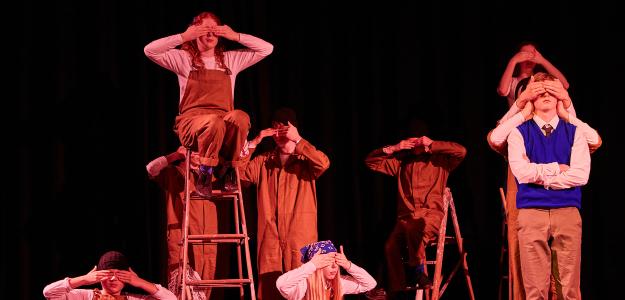
Component 2: Scripted performance: 20%
Component 3: Written Examination 40%
This is a challenging practical course supported by a heavy written element. Candidates need to have a keen interest in developing skills in improvisation, reading and performing scripts and creating devised theatre and be prepared to give time out of school for compulsory theatre visits, and rehearsing with your group in preparation for examined performances. There will be a cost for theatre visits; the school will provide support for students if this is an issue.
AS and A level Theatre Studies AS and A level Performing Arts BTEC Performing Arts
“Drama is much more challenging than I imagined. You’ve got to really want to succeed and be prepared to put in extra rehearsal time in order to do well. Learning is fun in Drama but it’s also demanding and the expectations are high. There is more written work than I expected so this is a course for people who can express themselves through practical and written work.”
GCSE Film Studies has always enabled students, particularly those with a flair for English, to do something which pushes their creativity and analytical skills. Students who take this course are very motivated and the work they put in is reflected in the results. Many students exceed their targets and some by several grades. It is also the only GCSE option that gives students the opportunity to utilise and hone creative writing skills.
Students will learn the nuances of film form (cinematography, sound etc.), film structure (narrative, genre, etc.) and representational issues. In addition, they will also be taught how to comment on the social, historical and political context of films.
The two exams at the end of the course will test the above skills but also their understanding of six different films. These films have been chosen to expand and enhance their knowledge of the subject, including independent films, non-English language films and films made pre-1960.
As well as these academic aspects of the course, students will also learn screenwriting and filmmaking skills. They will begin by being taught pre-production skills (such as script formatiing and storyboarding) before moving on to camerawork, sound design and editing. Alongside this, they will also be taught the skills needed to write their own movie screenplay. 30% of their final grade will be assessed in the creation of either a two-minute film or a short screenplay - created independently from an original idea.
Film Studies and filmmaking are incredibly rewarding and many of our former students have gone on to study it at university or begun burgeoning careers in the movie industry.
Paper 1: US Film (35%)
Paper 2: Global Film (35%)
Non-Exam Assessment: Production (30%)
This course is aimed at students passionate about film, future filmmakers, creative writers, or anyone keen to think about film on a deeper level. As well as being an opening for anyone who wants to work in the film industry, it is also an opportunity for anyone who enjoys English, as the skills and knowledge are easily transferable. Film studies is good for anyone who enjoys a mix of critical thinking and hands-on experience.
A-Level in Film Studies, Media Studies or Photography. A-Level in English Literature, English Language or Combined Language and Literature.
A variety of BTEC Media and Film Production courses
“As someone who studies AS Maths and Triple Science, I enjoy challenging subjects and Film Studies is one of them. I have experienced films that I would never have usually watched and learnt lots about the film making process. It is not all about watching movies! I have found it extremely entertaining and educational all the way through.”
The world is directly affected by our visual culture. Art is no longer just about drawing and painting. It encompasses a huge range of approaches and materials. Every person is creative and within the Art Department we aim to nurture the style particular to each student.
The Fine Art course actively engages students in their own learning. Students are encouraged to work independently and, wherever possible, from direct observation. This broad course seeks to acknowledge students’ interests, aspirations, aptitudes and culture by providing opportunities for the development of their creative, imaginative and critical abilities. Students are introduced to a variety of two and three dimensional experiences: employing a range of media, processes and techniques as a basis for their expressive, design, and critical ability. This could include drawing, painting, sculpture, ceramics, textiles, graphics, photography, and printmaking.
Students are helped to develop their individual creativity, to make informed judgements about their work; as well as the inspiration that they can take from other artists, designers and crafts persons.
• Coursework: This is a body of work completed throughout Year 10 and the first term of Year 11. It consists of 3 projects showing a range of techniques. Much of the preparation for a project is completed in A3 sketchbooks which students need to purchase from the school shop. Funding is available for those who need it.
• Exam: A ten week preparation period and a ten hour final practical sat in the art rooms over two days.
60 % Coursework completed in Year 10 and the first term of Year 11.
40% Exam. Paper distributed in January leading to a ten hour test in April of Year 11.
This course would suit any student who enjoys art. Students need to have an open mindset and enjoy learning new techniques.The Fine Art course demands a home learning commitment of between one and two hours a week. Students are encouraged to use the studios at lunch times or after school.
GCSE Art is a pre-requisite for A Level Art. Further studies may lead on to a career in: Film, Television, Theatre, the Media, Graphic Design, Interior Design, Fashion, Illustration, Jewellery Design, Animation, Ceramics, Photography, Gallery and Museum Work, Exhibition Work, Teaching, Garden Design
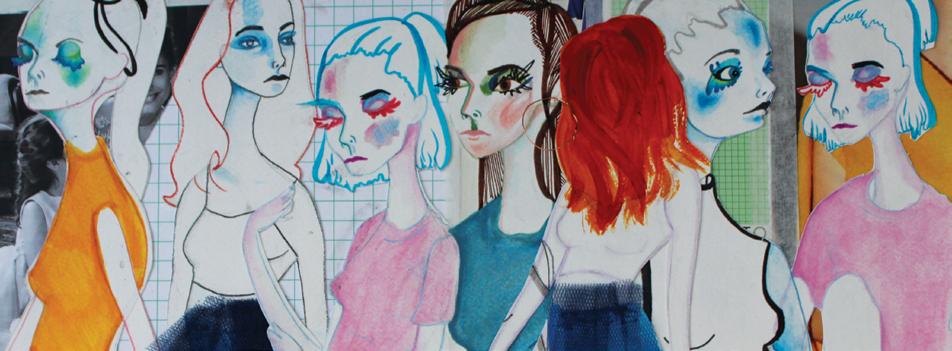
“I like Art at Dorothy Stringer because it provides a positive environment in which you can improve current skills and develop new ones”
“Art is good because there isn’t a correct answer; you get to make the answer”
‘Visual communication’ is any image used to communicate an idea. It could be a sign, poster, illustration, photograph, advertisement or piece of film. We see all of these many times during our day and their influence is immense. How do we begin to understand our visual world?
Graphic Communication GCSE will be a brief based, broad curriculum exploring a range of graphic media, techniques and processes. We will look at both traditional and new technologies.
aStudents will acquire understanding of design concepts and skills and learn to develop their individual creativity. They will gain the confidence to make informed judgements about their work; as well as taking inspiration from other artists and designers. Graphic design students need to be observant, imaginative and playful.
• Coursework: This is a body of work completed throughout Year 10 and the first term of Year 11. It consists of 3 projects showing a range of techniques. Much of the preparation for a project is completed in A3 sketchbooks which students need to purchase from the school shop. Funding is available for those who need it.
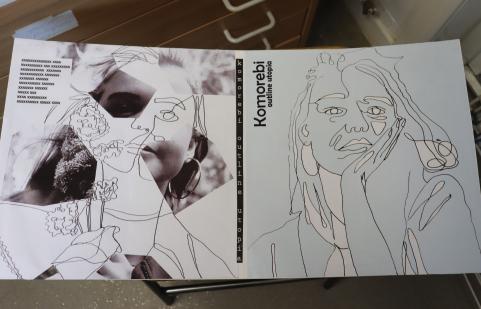
• Exam: A ten week preparation period and a ten hour final practical sat in the art rooms over two days.
60 % Coursework completed in Year 10 and the first term of Year 11. 40% Exam. Paper distributed in January leading to a ten hour practical exam in April of Year 11.
This course would suit any student who is interested in visual communication e.g. advertising, photography, type, digital design etc. Students need to have an open mindset and enjoy problem solving. The Graphics course demands a home learning commitment of between one and two hours a week. Students are encouraged to use the studios at lunchtimes or after school.
GCSE graphics is not a pre-requisite for A level Graphics although it is an excellent foundation. Further studies may lead on to a career in: Advertising, Film, Television, the Media, Graphic Design, Illustration, Animation, Photography, Exhibition Work, Web Design and Teaching.
‘‘I like how you have to be so creative with such simple things’’
‘‘ I think the Graphics course is really great. It has made me want to continue this as a career as I love the creative side to it and I have also learnt a lot about design in the wider world’’
The GCSE Music course allows candidates to develop their musical performance, composition and listening skills.
Broad based skills include:
• Musical analysis and theory
• Composition skills
• Performance skills
• Music Technology
The course is challenging and exciting, covering a range of topics through four interrelated areas of study. They are designed to develop knowledge and understanding of music in:
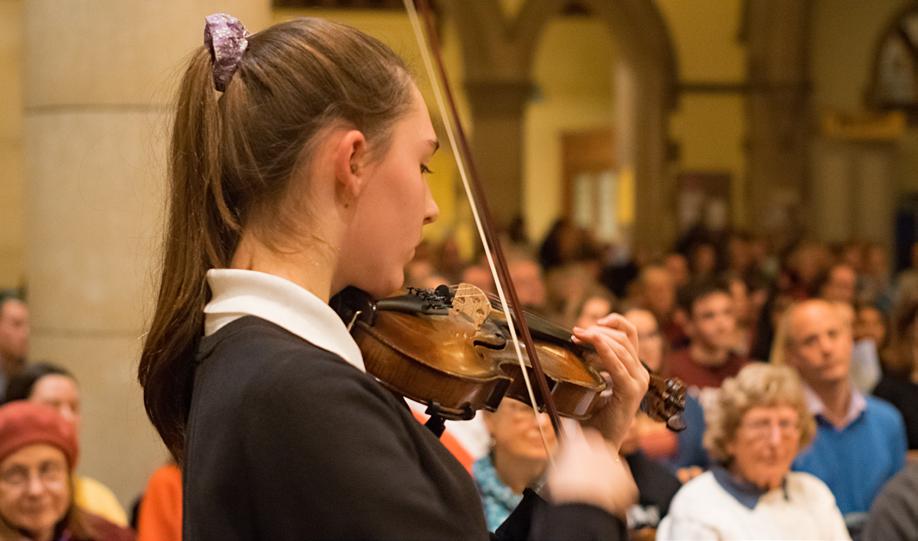
• Musical Forms and Devices
• Music for Ensemble
• Film Music
• Popular Music
Candidates are given the opportunity to develop an understanding and working knowledge of:
• A theoretical background of music and compositional techniques
• Exploring and development of compositional style and writing in a chosen style
• Ensemble and solo performance work
• Technology – how to use Sibelius and Ableton Software
How the course is assessed
60% Coursework – This includes two compositions and two performances
40% Listening Exam – Students listen to and respond to music from the four areas of study, also includes questions on two set works studied during the course
It is strongly advised that students should be able to read music or have an intention of learning to read music.
It is also strongly advised that students learn a musical instrument.
• AS/A Levels in Music and Music Technology
• BTEC National Diplomas (in Music, Popular Music and Music Technology)
• Performing Arts BTEC/A Level
• Access to Music
• Music Colleges
• BIMM
• MGA Academy
• Brit School
“I enjoy the creative and exciting ways of learning”
“I enjoy the independence in our practical lessons”
The BTEC Level 2 Music Practice is a hands-on approach to music-making, developing skills such as musical elements, music creation, performance, and music production. This course is equivalent to one GCSE.
Broad based skills include:
• Rehearsing, ensemble and band work
• Listening and performance skills
• Composition skills: instrumental and digital
• Researching a variety of musical genres
• Responding to a music industry brief
In lessons, you will be expected to plan your practice, composition, and research time. There will be a variety of performance opportunities, events both in school and external venues. It is a truly vocational course, and students will learn what is required to be a successful performer at a live event.
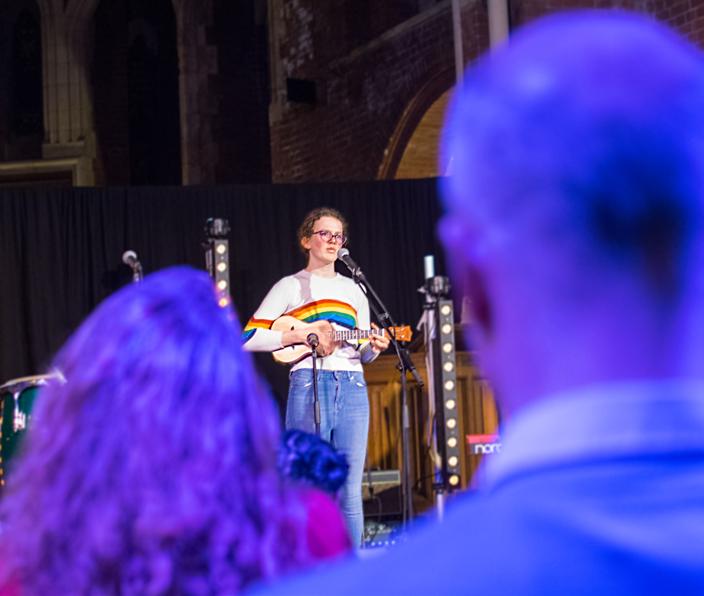
Why pick Music Performance and not GCSE Music? Rehearsing and performing is a major focus of this course, developing skills and learning how to apply them to your musical creations. Also learning about the music industry can lead to a succesful music career. You will track your own progress and set your own targets. You will also learn how to research a variety of music genres and present your findings in a platform of your choice.
How the course is assessed
UNITS INTERNALLY ASSESSED
• Exploring Music Products and Styles
• Music Skills Development
UNITS EXTERNALLY ASSESSED
• Responding to a music brief
If you play an instrument, love performing, practising, and composing and would like to learn more about the music industry then this is the course for you.
• BTEC National Diplomas(in Music, Popular Music and Music Technology)
• Performing Arts BTEC/A Level
• Music Colleges
• BIMM
• MGA Academy
• Brit School
‘The best thing about this course is the opportunities I have been given to perform and the enjoyment of working with other like-minded people’
This course allows students to communicate visually through the versatile and creative medium of photography. This is a digital photography course and there will be a strong emphasis on the formal elements of picture making. Pattern, shape and colour will be explored as well as light, movement and composition.
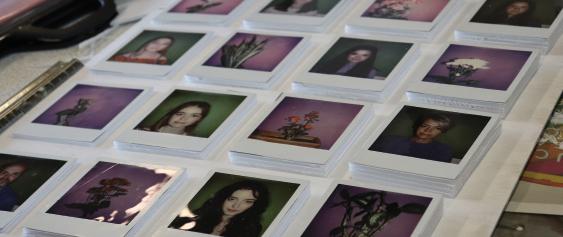
Students will be taught the mechanics of how a camera works and focus on the skills that make an interesting photograph as opposed to a snap shot. They will learn how to use the manual settings of the camera for shoots taken in a variety of conditions and situations. We have ten Canon EOS.1200D cameras for use in lessons.
It is not necessary to own a DSLR camera. Home learning shoots can be taken on a phone/camera as long at students have a way of uploading to OneDrive through the SLG.
Digital editing is taught, enabling our students to alter their pictures or create new images. Students will study the different genres of photography and get inspiration from traditional as well as contemporary photographers.
Coursework: This is a body of work completed throughout Year 10 and the first term of Year 11. It consists of 3 projects showing different themes and approaches. Evidence for the portfolio of work will be kept both digitally and as printed outcomes. Printing costs are covered by the department.
Exam: A ten week preparation period and a ten hour final practical completed in the art and computer rooms over two days.
Coursework: 60%
Exam 40% Suitable
This course would suit any student who enjoys taking photographs and wants to learn the creative possibilities when using the medium of ‘light’. Students should be prepared to take photographs outside of school and to keep up with the demands of coursework deadlines.
GCSE photography is not a prerequisite for A Level Photography although it is an excellent foundation. Further studies may lead to the following careers: Photographer for books and magazines (food, sport, fashion ), Advertising, Press Photographer, Photo Journalist, Programme Researcher, Broadcasting/film/video Runner, Broadcasting/film/video/ television camera operator, Location manager.
“Photography has taught me skills I never thought existed”
“No matter if you are experienced or not this subject will help you understand your camera”
• The scientific study of mind and behaviour.
• One option – five lessons per fortnight.
• 6 topics taught over two years, covering 5 approaches to psychology: Social, Developmental, Cognitive, Bio-psychology and Individual Differences.
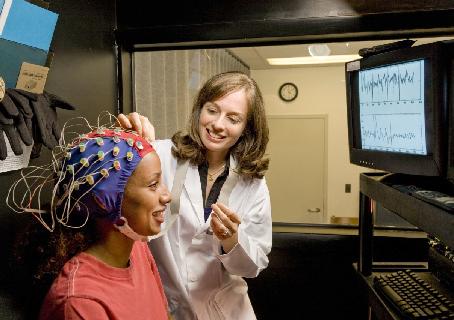
• Criminal
• Development
•
• Social Influence
• Memory
• Sleep and Dreaming
There will also be a research methods section within each component. For Paper 1 the focus will be on designing an investigation and for Paper 2 the assessment will focus on analysing and evaluating a novel source. Specific research methods content may also be assessed within the topic areas, as well as students’ understanding of neuropsychology and mathematical skills.
Two written papers – each is worth 50% and lasts 1 hour 30 minutes. Only one tier of entry – no foundation/higher papers.
Students should be aware that Psychology is linguistically challenging – they will need to have good written literacy skills to obtain a good grade.
Students will need to learn lots of new vocabulary and details of theories and studies, as well as their strengths and weaknesses.
To do well in Psychology students need good revision skills, independence, organisation and motivation. Good understanding of scientific method and basic maths is needed.
Psychology GCSE is not a prerequisite for Psychology A Level. Psychology is a useful subject for a number of careers, particularly those that involve working with people. Students have progressed from Psychology GCSE to nursing, teaching, social work, work in the police and prison service, and many forms of office work.
“It’s fun learning why people behave the way they do.”
“It’s such an interesting subject; I want to be a Psychologist one day.”
The GCSE in Religious Studies provides the opportunity for all students to learn about the beliefs, teachings and practices of two of the world’s major religions. Also students study different religious, philosophical and ethical themes, which allows them to consider and express their own viewpoints on a range of issues regarding life and society.
Students have been very successful in Religious Studies at GCSE level in recent years.
• Component 1 is the study of the beliefs, teachings and practices of two religions. For example, beliefs about life after death, morality and identity, teachings about the nature of God and existence; as well as the origins and historical background of major religions; and different forms of worship and festivals such as Christmas and Parinirvana Day. The two religions studied will be Christianity and Buddhism.
• Component 2 is the study of religious, philosophical and ethical themes in which students consider various arguments and their impact and influence in the modern world. The thematic studies will include Peace and Conflict; Crime and Punishment; Human Rights; Social Justice and the Value of Life, which includes animal rights, environment, abortion and euthanasia.
Religious Studies is valuable for you to develop skills in discussion, debating and understanding opinions and ideas. You will learn the importance of respecting and understanding others’ ideas, cultures and traditions as well expressing those of your own effectively.
Two exams of 1 hour 45 minutes at the end of the course (50% each)
Suitable for students interested in current affairs, exploring other cultures as well as those who wish to think deeply about life and existence, be critical and analytical and to discuss/formulate arguments.
*If there is a high enough uptake with students of a high calibre, it may be possible to additionally offer the AS Level Philosophy and Ethics course.

AS and A2 level Religious Studies. Also useful for AS/A2 courses in Philosophy, Critical Studies, Anthropology and Politics.
“I really enjoy learning about current issues and having debates about them. You learn about other peoples’ opinions and you gain wider understanding of society”
“It educates people to be open minded”
“We are able to express our opinions and beliefs in small groups or as a class and be respected”
This qualification is ideal for anyone who is interested in sport and/or considering a career in the sports industry. The course is challenging and exciting covering a wide range of topics:
In Year 10 you will study the following:
• Applied anatomy & physiology
• Movement analysis
• Physical training
• Use of data
In Year 11 you will study the following:
• Sport psychology
• Socio-cultural influences
• Health fitness & well-being
• Use of data
The practical side of the subject runs over both years. You will submit 3 sports –
1 individual sport
Athletics, Badminton, Dance, Gymnastics, Rock Climbing, Swimming, Table Tennis, Tennis or Trampolining.
1 team sport
Basketball, Cricket, Football, Handball, Netball, Rugby or Volleyball.
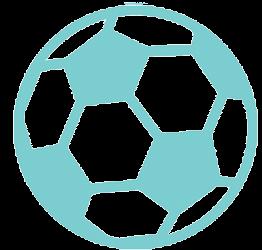
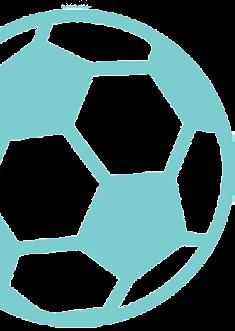
1 from either list (team or individual)
Please note: there are a few other sports available but would need to be taught externally and assessed via video footage, for example; skiing.
Your PE teacher will help you to make a choice between GCSE PE and Sports Studies.
70% of the course is theory based.
70 %2 x exams – each worth 30% of final mark 30%-
1 x controlled assessment –worth 10% of final mark
3 x practical sports – each worth 10% of final mark
To take this qualification you will need to enjoy your sport and PE and you need to be motivated and organised. It is of vital importance when selecting GCSE PE that you have a genuine interest in playing sport and that you are engaged in sport both in and outside school. Attendance in the school’s extra-curricular programme is compulsory.
This would be a really good choice if you are interested in a career working in the sporting industry and/or you would like to take PE and sport further after Stringer. This subject would go well with Biology and Psychology.
AS, A level in Physical Education/ Sports Science.
BTEC National Diploma in Sport and Exercise Science. JSLA/CSLA.
Access to any sporting qualification
“I really enjoy how we learn about the body and how it enables us to play sport.”
The 3 modules that will be studied throughout this course are
R184:
Sport (1 hour exam) (40%)
This unit sets the context of sport within the wider environment and how it reflects society and its values. Students will explore a range of topical and contemporary issues in sport, as well as the promotion of values and ethical behaviour through sport. Students will also learn about the role of high-profile sporting events and national governing bodies.
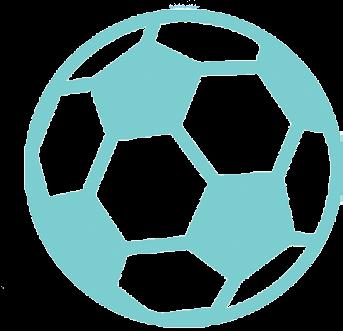
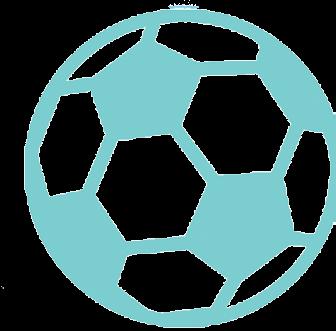
60% Practical with Coursework
40% Exam
Students wanting to develop applied knowledge and practical skills in Sports Studies.
In this unit, students learn more about different leadership roles and styles. They will then go on to plan and deliver effective and safe sessions and evaluate their own performance.
Students will develop an understanding of the outdoor activities that are available in the U.K. Students will also learn about the benefits of outdoor education and experience these benefits for themselves. They will then plan their own outdoor activity, considering the health and safety implications associated with that activity.
Your PE teacher will guide you to make a choice between GCSE PE and Sports Studies.
Students who want to progress onto other related study, such as qualifications in Sports, Physical Education, Social Science or Media.
Post 16 Progression Routes
BTEC National Diploma in Sport and Exercise Science. JSLA/CSLA.
Access to most sporting qualifications
Student Comments
‘‘We have learnt a number of interesting topics, but this has been balanced with plenty of practical lessons.’’
‘‘ I have really enjoyed learning how to be an effective basketball official. This style of learning has suited me as I have been able to get feedback on my work’’
Sociology is the study of human society. It draws on a variety of viewpoints in order to understand the social world around us, in an open and critical manner. It concentrates on the way we make society, what it is and how society shapes us. You will relate this to your own experiences of living in Britain. You will also study how societies have changed over time and how it differs across cultures.
By studying Sociology you will develop a wide range of knowledge and understanding about how Sociologists study and understand social structures, processes and issues. You are encouraged to take a questioning approach to evidence and issues, thus developing critical, analytical and evaluative skills.
• The Sociological Approach
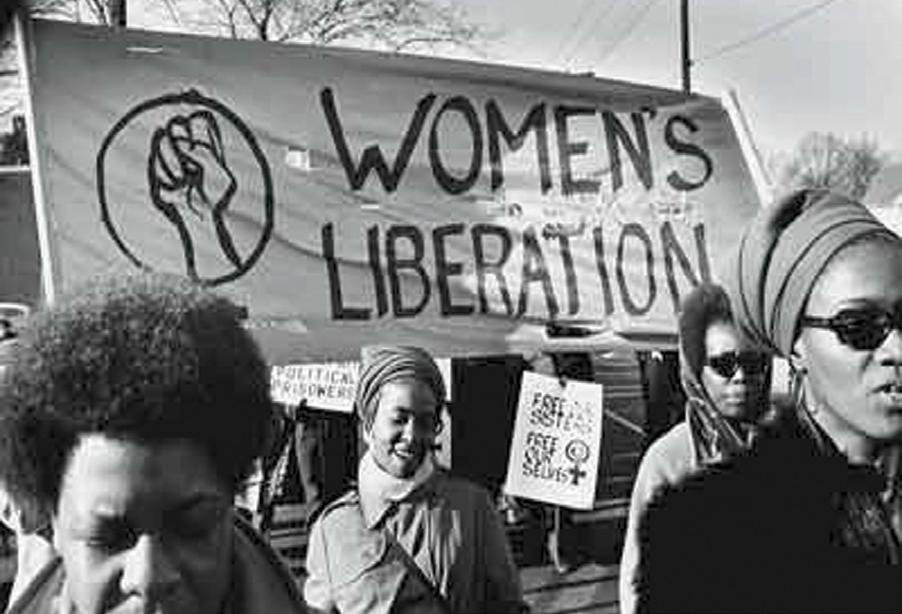
• Families
• Education
• Crime and Deviance
• Social Stratification
• Sociological Research Methods
There will be two final exams based on two units, each worth 50% of the GCSE. Each exam will be 1 hour 45 minutes.
Students should be aware that this is a challenging GCSE. They will need to have strong literacy skills and be confident at writing essays. Students will need to be motivated, independent learners who are committed to hard work both inside the classroom and at home.
GCSE Sociology is not pre-requisite for AS or A level Sociology, however, it is an excellent foundation to support this.
It would be also be useful if you are considering studying or working in any of the following areas; Anthropology, Politics, Law, Economics, Social Work, Journalism or Global Relations.
“I love Sociology. I love how you get to know about different people and I feel there is a sense of unity when learning the subject. The key ideas are linked to many other subjects around school. It gives you a better understanding about key aspects of life. Our class are keen learners and love debating and discussing different issues.”
There is considerable overlap between Maths and Statistics at GCSE level. This course will greatly benefit those who want to achieve a 6 or higher at GCSE Maths. Students will study topics covered in Maths GCSE but will have the opportunity to extend these and to use them in real life situations.
Data will be collected, presented and analysed using techniques such as pie charts, cumulative frequency polygons and histograms. Data will also be analysed by using the mean, mode, median, range, quartiles, percentiles etc. Probability is also part of the syllabus. In addition, students will learn new ways to interpret data looking at topics such as seasonal trends and population.
The course then moves on to look at other uses of statistics such as financial statistics (e.g. cost indices, RPI) and population statistics (birth and death rates).
Knowledge of statistical analysis is also becoming increasingly important in the work place. Having a GCSE in this subject will greatly benefit those students considering a variety of career options such as computing, business, education media and psychology.
Note that students who are currently in Set Newton who particularly want to study Statistics as an option course should speak to Mr. Francis.
2 written calculator exams (1 hour 45 minutes each) Papers include multiple choice and short answer questions as well as a Statistical Enquiry Cycle Question.
Statistics is used across the curriculum in subjects such as Geography, Science, Environmental Science, Psychology and Philosophy. Students taking Statistics GCSE will gain an advantage of a ‘second’ Maths qualification at GCSE and it will aid the transition between GCSE and ‘A’ level. Students going on to study subjects including Science, Geography, Social Sciences and Psychology at sixth form college will find knowledge of Statistics extremely useful.
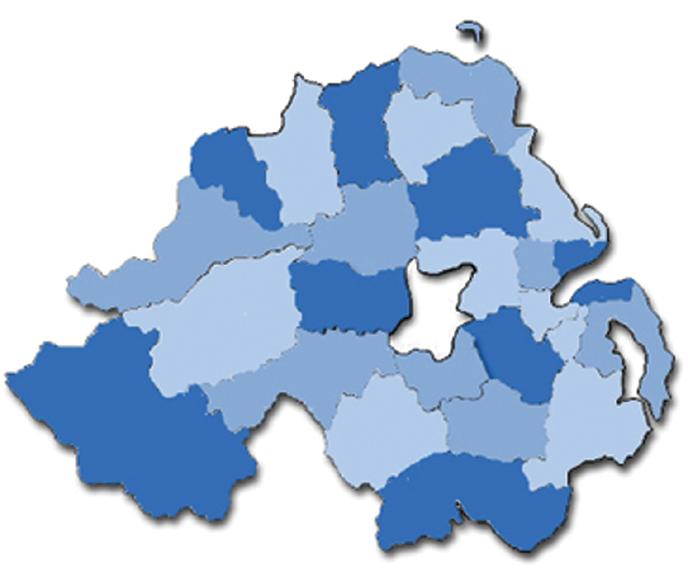
AS or A level Maths AS or A level Further Maths
“Statistics allows you to use Maths in the real world.”
“Statistics gives you an important insight into how data can be manipulated. I will never look at a survey the same!”
Textile Art involves the creation, selection and manipulation of surfaces through a variety of techniques and processes to construct unique outcomes. During the course you will have the opportunity to explore range of traditional and contemporary skills. You will explore and experiment with a wide range of media and processes which may include: Constructed Textiles, such as felting or weaving along with printing, dying, bonding, and stitching. You will learn to use the sewing machine as a drawing tool and to apply texture.
There will be opportunities to experiment with manipulating surfaces such as fabrics, plastics, wool and reclaimed objects. Outcomes can be two or three dimensional art pieces. Emphasis is placed on an experimental and highly creative approach to design and making.
Students who are highly creative and would like to extend and develop their Art skills by exploring both traditional and unconventional textile techniques. Independent study is an important part of the course and students are encouraged to use the Art studios at lunch times and after school.

A level Art, Textile Art or Fashion Textiles. Further studies may lead on to a career in: Film, Television, Theatre, Costume design, Stylist, Textile agent, Textile Technology, Smart Fabrics, Textile Design, Fashion, Marketing and Management, Design for Television, Film or Theatre, Product Development and Innovation, the Media, Interior Design, Fashion, Illustration, Exhibition Work etc.
“I like textiles because of the mixture of art and textiles. It can suit lots of people’s choices.”
“I really love textiles art! I look forward to the days I have textiles and take a lot of pride over my folder”
“Textiles is important because it gives you the freedom to create something unique”
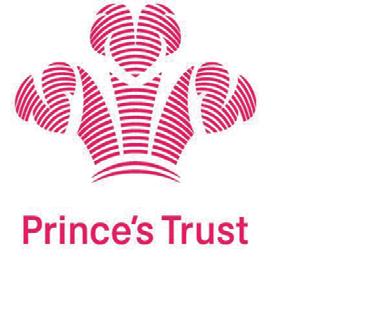
The Prince’s Trust Certificate in Personal Development and Employability Skills (PDE) recognises a breadth of personal skills, qualities and attitudes required by employers across a range of sectors.
This is NOT a GCSE equivalent course, but is designed to help students prepare for life after Stringer. It is only available to students who are on the non-language pathway.
You will have the opportunity to:
• Develop your own personal growth and engagement in learning
• Engage in learning that is relevant to you and develop a set of personal skills and attributes that are essential for working life and employment
• Prepare yourself for progression into further education, apprenticeships or other work based learning
• Develop your English and mathematics skills
Units covered include:
• teamwork
• healthy living
• presentation skills
• career planning
• practising leadership
A portfolio of work based on the completion of units.
You must complete a number of individual modules. The course is assessed at “Entry”, “Level 1” or “Level 2” based on a portfolio that you will build up across the two years of the course. Students achieve a Pass or Fail and the level of their portfolio.
There are no exams.
This course is only available to students on the non-language pathway.
This qualification will give you a wide range of skills that are transferable to jobs, apprenticeships, career training, and other subjects at A level.dent Comments
Sport leadership and coaching is an options subject aimed at those student who love practical sport. The course can be taken alongside GCSE PE, Sports Studies and other options. It gives students an opportunity to express themselves practically whilst also teaching them valuable life skills through participation and leadership in a variety of practical activities.
This is NOT a GCSE equivalent course and is predominantly practically based. It is only available for students who are on the non-language pathway.
You will have an opportunity to:
• Develop skills in confidence, team work, problem solving, responsibility and communication.
• Further develop knowledge of officiating
• Express yourself in a range of practical sports
• Learn how to lead others and work with them to develop their sports specific skills
• Work with younger year groups and primary schools to develop leadership skills that can be transferred into work and life beyond school
Units of work covered:
• Practical sports skills
• Team work through sport
• Officiating in sport
• Coaching young people through sport
• Developing leadership skills through sport
This course is teacher assessed.
This course is not accredited by any board. It is NOT a GCSE equivalent course.
If students express an interest, staff will put students forward for relevant qualifications through sporting governing bodies (e.g. FA Playmaker Qualification, FA Level 1 Football)
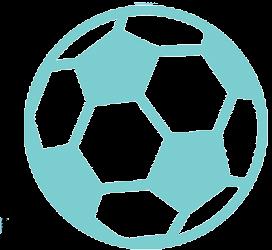
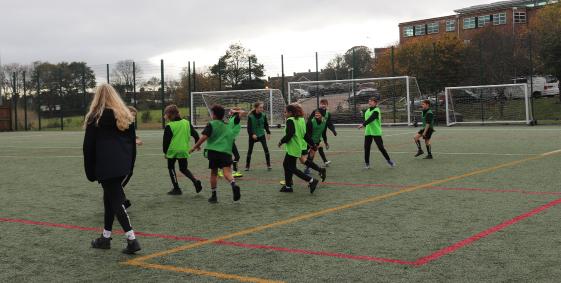
This course is only available for students who are on the nonlanguage pathway
This qualification will teach students a range of transferable skills that can be applied to a range of qualification at post 16 level.
Community Sports Leadership
